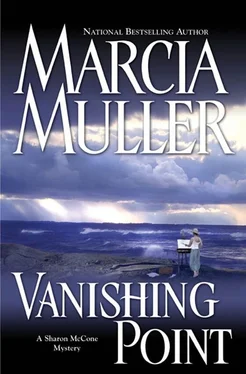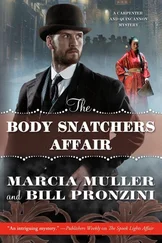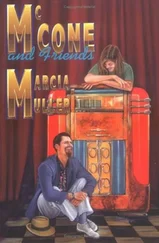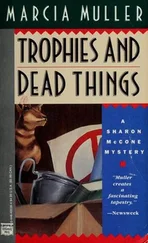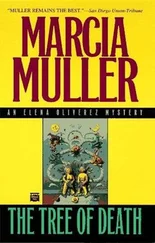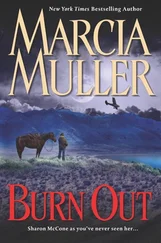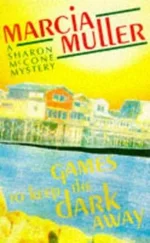“And the things she gave in on?”
Sally considered. “Well, where they went on their vacations. She would’ve preferred to go to a resort, but Roy liked to camp, so they went camping. Where they lived; she wanted to be in the country, but he wanted to be in town near the clinic. One time, a couple of years before she disappeared, she got into this Arts in Correction program at the California Men’s Colony, the prison down at San Luis Obispo. They had local artists come in and teach the inmates all sorts of stuff, from filmmaking to painting to fiction writing. Laurel was really excited about it, taught there for maybe six months, but then Roy pressured her into quitting. Said it was taking too much of her time away from the family, but I think he really didn’t want her associating with the criminal element. She was disappointed, but she turned around and devoted more time to the greeting card business instead.”
Now, that was interesting. Nowhere in my files had there been a mention of Laurel teaching at the prison.
“Was Laurel friendly with any of the inmates she taught?”
“She was a friendly person. But if you mean, did she have any contact with any of them outside the classes, I’d guess not.”
“And she never mentioned having trouble with any of them?”
“All she ever said was that they were a well-motivated group, and that a couple showed real talent. She would’ve liked to’ve gone on teaching, but she wanted to keep peace in her marriage.”
The marriage didn’t sound very good to me. Although Hy and I had been married less than a week, we’d been together for years; neither of us had ever told the other what to do or not to do, and in our disagreements we’d always been straightforward. The Greenwoods’ relationship, on the other hand, seemed both controlling and manipulative. But was the situation sufficiently difficult to make Laurel walk away from her husband and children? That wasn’t a move a woman who took her responsibilities seriously could easily make. There would have had to be some sort of trigger…
“Sally,” I said, “this may sound like a strange question, but do you know what kind of perfume Laurel wore?”
“Why on earth do you ask that?”
“Someone said something to me about her perfume. It probably doesn’t have any bearing on her disappearance, but I’m curious.”
“Well, I do happen to know because we both wore it. Passionelle. They stopped making it around the time Laurel disappeared.”
“Speaking of that time, did anything unusual happen to Laurel in, say, the six months before she disappeared?”
Timmerman frowned, looking down and swirling the wine in her glass. “Things were pretty much on an even keel, at least as far as I know. I’d say the most unusual thing was Josie’s death, but that was a full year before.”
“You were at the house when Jennifer and Terry came home from school the day after Laurel disappeared. Did Roy ask you to come over?”
“Actually, Bruce Collingsworth, the police chief, suggested it. He was sending a couple of officers over to talk with Roy, and he thought I might have some insight into where Laurel had gone.”
“Did you tell the police your impressions of the Greenwoods’ marriage?”
“No. They didn’t ask, and I didn’t think it was my place to volunteer.”
“Anna Yardley was there that day, too. Did Roy call her?”
“I assumed so. Although it struck me as strange at the time. I mean, Anna was hardly ever there. She and Laurel didn’t get along.”
“How come?”
“Have you met Anna?”
“Yes, earlier today.”
“Then you know what she’s like-cold, disapproving. Laurel didn’t want her negativity influencing the girls. It’s a shame that afterwards she took such a hand in their upbringing. Laurel would not have wanted that. In fact, it was a role she’d asked me to assume if anything ever happened to her.”
“Why didn’t you?”
“Roy made it plain I wasn’t welcome to. Oh, he didn’t come right out and say ‘You’re not wanted here,’ but he did say things like, ‘You have enough to do raising your own kids,’ and, ‘After all, Anna is their flesh and blood.’ It hurt me to be pushed out of their lives that way, but what could I do? The agreement between Laurel and me was only a verbal one.”
“This agreement-when did you make it?”
“A few months before Josie died. Laurel was facing her own mortality. So was I, for that matter. If I’d’ve died, Laurel would have helped bring up my kids-with my husband’s blessing.”
“You say ‘died.’ How certain are you that Laurel’s dead?”
“I’m certain.”
“Could she have committed suicide?”
“I doubt it. No one who knew her considered that a serious possibility. It had to be foul play.”
“You sound almost as if you want Laurel to be dead.”
Sally’s eyes clouded. “I suppose in a way I do. Because if she’s not, if she’s been someplace else living some other life all these years, it would mean I never knew her at all. It would negate our friendship and everything we ever shared during all those years.”
After I said good-bye to Sally Timmerman in the inn’s lobby, I walked back to my room across the tree-shaded central courtyard. The night air was warm and fragrant from the flowering plants that grew in profusion there; I could hear people splashing in the nearby swimming pool. By contrast, my room was chill from the air-conditioning I’d left on when I went to dinner; I turned it off and opened the balcony doors to take advantage of the summer night. Then I sat down with my files and called Derek at his Marina-district apartment in San Francisco.
He said, “I sent you files on Jacob Ziff in Cayucos and the guy in Morro Bay, Ira Lighthill.”
“Good, I’ll take a look at them tonight. Tomorrow I’m talking with the Paso Robles police officer who worked the case, then heading down to the coast. I’ll try to talk with the Greenwood girls’ babysitter tomorrow night. In the meantime, I’ve come up with a couple of lines of inquiry I’d like you to look into: first, Josie Smith, a cousin of Greenwood’s, deceased twenty-three years, lived up there in the city.”
“Josie Smith. Got it. You looking for anything specific?”
“Just fishing. Now, second: about a year before Smith died, Greenwood taught art classes for around six months at the California Men’s Colony at San Luis Obispo. Contact them and see if they have any record of it. Try to get names of inmates enrolled in the classes, and their whereabouts at the time she disappeared. If they don’t want to give out information-and I suspect they won’t-Craig has a contact at the state department of corrections who can help.”
“Will do. How soon d’you need this?”
“Tomorrow afternoon will be fine.”
My next call was to Patrick, who was still at the office. We went over my day’s activities, and I told him I’d be faxing him my notes, e-mailing a report, and messengering the tapes of my interviews in the morning. Then I made a call to the RKI condominium where Hy stayed while in La Jolla, got the machine, and left the number here at the inn. I considered calling his cellular, but if he wasn’t at the condo it meant he was probably tied up in a meeting or at a business dinner.
It had been a long day, so I decided to take a shower and go to bed early, saving Derek’s information on the two witnesses till the morning. But first I rummaged in my briefcase, took out my copies of the newspaper accounts of Laurel Greenwood’s disappearance, and once again contemplated the head-and-shoulders photograph that had been published with the stories. It showed a woman with a delicate heart-shaped face, large, wide-set eyes, and long, softly permed dark hair; she was posed in front of a rosebush, smiling radiantly into the camera, one hand raised to cup a blossom to her cheek.
Читать дальше
